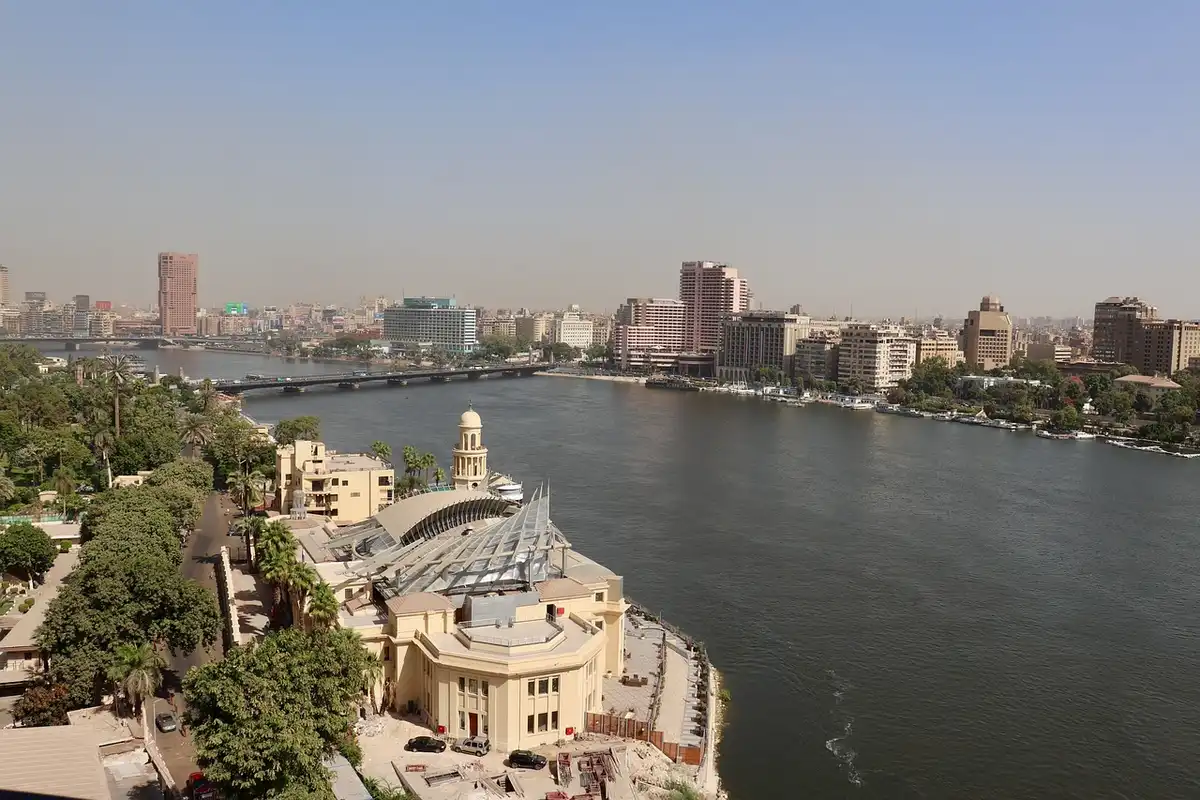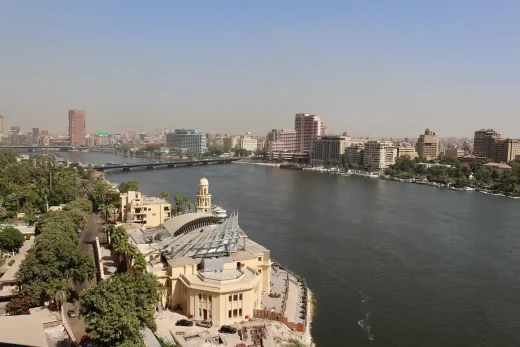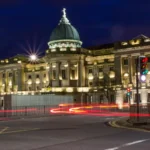River Nile Cruise Egypt culture trip, Cairo visit travel guide, visiting Egyptian monuments festival
River Nile Cruise Egypt Culture Trip
2 October 2024
A Festival-Filled Nile Cruise: Celebrate Egypt’s Culture on the River
Egypt, a land of ancient wonders and vibrant traditions, offers an array of festivals that captivate the hearts of travellers. Egyptian festivals uniquely blend history, culture, and communal spirit, providing visitors with unforgettable experiences. These celebrations often occur along the iconic Nile River, where the past and present converge in a spectacular heritage display.
Witness these traditional celebrations first-hand for those planning their Nile Cruise 2025 adventures. As you sail down the Nile River, you can immerse yourself in various cultural experiences that highlight Egypt’s rich history and customs. Each festival presents a different facet of Egyptian life, from grand processions to intimate local gatherings.
Oline travel agencies like Travelodeal can help you plan your journey to ensure you don’t miss out on these extraordinary events. With expert guidance from an Egypt travel guide provided by such agencies, you’ll be well-equipped to explore the festivities with ease and insight. Whether you’re attending a colourful street parade or participating in ancient rituals by the riverbank, these festivals offer a glimpse into Egypt’s soul that is both enchanting and educational.
Sham El-Nessim
Sham El-Nessim, an ancient spring festival celebrated in Egypt, marks the arrival of spring and is deeply rooted in Egyptian traditions. This celebration dates back to Pharaonic times, making it one of the oldest festivals still observed today. “Sham El-Nessim” translates to “sniffing the breeze,” symbolising the appreciation of nature’s renewal.
The Sham El-Nessim celebration typically occurs on Easter Monday, aligning with the Coptic Christian calendar. Egyptians from all walks of life participate in this joyous occasion by spending time outdoors, often picnicking in parks and along the Nile River. Traditional foods play a significant role during this festival; families indulge in dishes such as Fesikh (fermented fish), lettuce, green onions, and coloured eggs.
The customs observed during Sham El-Nessim are reminiscent of ancient Egyptian festivals honouring fertility and agriculture deities. These age-old practices highlight a continuous cultural thread preserved through millennia. As Egyptians embrace modernity, they continue to cherish and celebrate Sham El-Nessim as a testament to their rich heritage and enduring connection to nature’s cycles.
Ramadan and Eid Al-Fitr
Ramadan in Egypt is a unique experience marked by a deep sense of spirituality and community. This holy month, observed by Muslims worldwide, involves fasting from dawn until sunset, offering prayers, and engaging in acts of charity. As the sun sets each day, families gather to break their fast with an Iftar meal, often beginning with dates and water and followed by a variety of traditional dishes.
Eid Al-Fitr celebrations signal the end of Ramadan and are characterised by joyous festivities. In Egypt, this Islamic festival is marked by communal prayers at mosques or open spaces, where people come together to give thanks for the strength to complete their fast. The celebrations continue with feasts featuring an array of delectable foods and sweets, visits to family and friends, and giving gifts or money to children.
Experiencing Ramadan on a cruise along the Nile River offers a unique perspective on these traditions. Passengers can partake in Iftar meals while enjoying scenic views of ancient temples and bustling riverbanks. The cruise environment provides an intimate setting for understanding how Islamic festivals are celebrated in Egypt while immersing travellers in local customs.
Moulid Festivals
Moulid festivities are a vibrant and integral part of Egypt’s cultural and religious tapestry. These celebrations honour the lives of saints, scholars, and revered figures in Islamic history, particularly within the Sufi traditions. Moulid events along the Nile unite communities in a shared expression of faith, joy, and reverence.
Religious festivals in Egypt are marked by their unique blend of spiritual devotion and communal activities. During Moulid festivities, streets are adorned with colourful lights and bustling markets that sell traditional sweets and memorabilia. Sufi traditions in Egypt played a significant role during these times, with mystical music performances known as “dhikr” sessions where participants chant prayers and engage in whirling dances to achieve spiritual ecstasy.
The Moulid events along the Nile are particularly notable for their picturesque settings. These riverside celebrations often include processions, during which devotees carry ornate banners depicting saints while reciting poetry that praises their virtues. Such gatherings reinforce religious beliefs and strengthen social bonds within communities.
The Abu Simbel Sun Festival
The Abu Simbel temple festival is one of Egypt’s most enthralling cultural events, drawing visitors from around the globe to witness a unique solar alignment phenomenon. This extraordinary event occurs twice a year, on 22nd February and 22nd October, when the sun’s rays penetrate the inner sanctum of the Abu Simbel temples, illuminating the statues of Pharaoh Ramses II and other deities.
During each occurrence of this festival, hundreds gather before dawn to watch as sunlight gradually lights up three out of four statues in the temple’s innermost chamber—Ramses II, Ra-Horakhty (the sun God), and Amun (the king of Gods). Intriguingly, Ptah, the God associated with darkness, remains in shadow throughout this celestial event.
The celebration surrounding this solar spectacle includes traditional music and dance performances that transport attendees back to ancient times. The atmosphere is respectful, and awe as modern-day spectators connect with a ritual that has persisted for millennia. The Abu Simbel Sun Festival honours Pharaoh Ramses II and showcases Egypt’s rich heritage and enduring legacy.
Wafaa El-Nil
The Nile River has always been Egypt’s lifeblood, and its significance is celebrated through the annual Nile festival Wafaa El-Nil. This ancient tradition, deeply rooted in Egyptian culture, is a time to honour the river that sustains life and civilisation in this arid land.
Wafaa El-Nil is more than just a celebration; it is a homage to the river God Hapi, who was believed responsible for the annual flooding that brought fertile silt to the farmlands. In ancient times, Egyptians performed elaborate water rituals during this festival to appease Hapi and ensure a bountiful harvest. These rituals included offerings and prayers, reflecting Egyptians’ deep reverence for their natural resources.
Today, Wafaa El-Nil continues to be observed with various cultural activities highlighting historical practices and contemporary appreciation for the Nile’s vital role.
The Shams Festival
The Shams Festival, a fascinating celebration rooted in ancient traditions, offers a unique glimpse into the history of sun worship. This festival is dedicated to honouring Ra, the Sun God, who was revered as one of the most powerful deities in ancient Egyptian culture. The history of the Shams Festival dates back thousands of years, reflecting humanity’s enduring reverence for the sun’s life-giving power.
Sun worship traditions during the Shams Festival were elaborate and deeply symbolic. Participants engaged in rituals that included offerings to Ra, chants, and dances meant to invoke his favour and ensure bountiful harvests. Temples dedicated to Ra would often be adorned with intricate carvings and statues depicting his journey across the sky in his solar boat.
These ancient practices underscore a profound connection between early civilisations and their natural environment, highlighting how integral such celebrations were to their spiritual and daily lives.
Comments on this guide to River Nile Cruise Egypt culture trip article are welcome.
Property Designs
Glasgow Architecture Designs – architectural selection below:
Cameron House Loch Lomond Resort
Comments / photos for the River Nile Cruise Egypt culture trip page welcome.


